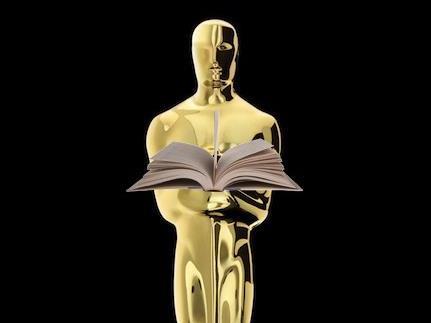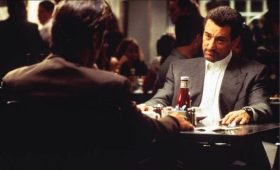When Helen Garner received an email telling her she had won the $US150,000 Windham-Campbell Prize earlier this year she thought it was spam. The award took her completely by surprise.
Few writers or artists are so lucky. Winning an award is usually the culmination of a long and often strategic process and it doesn’t stop on the dais. While an award can be a great way to promote your work and boost your profile, you need to as you milk the process for all it’s worth or you will have nothing more than an excuse for drink and a piece of paper that impresses your mother.
But winning an award doesn’t necessarily lead to commercial success, and if that is what you are after, then it is worth taking a few steps to make the most of your award.
Before you enter
1. Target carefully
Winning work may be the product of pure creative inspiration, but there is nothing wrong with creating work with a particular award in mind. Many awards are focused on themes or genres, most famously AGNSW’s triumvirate, the Archibald for portraiture, the Wynne for landscape and Sulman for genre painting. Many prizes have age limits and some have publication requirments – the Vogel’s Literary Award is for an unpublished manuscript by an author under 35 while the Miles Franklin goes to a novel which presents ‘Australian life in any of its phases’. Some prizes have very specific conditions: the Woollahra Small Sculpture Prize awards sculpture of up to 80 centimetres. Others vary in their themes: Paddington Art Prize for a painting inspired by the Australian landscape, St George Art Prize awards money to a work based on a theme which changes every year and the Melbourne Prize rotates between music, literature and urban sculpture.
2. Go for the low hanging fruit
Don’t think you have to go straight for the National Book Awards – there are plenty of smaller awards out there, and you’ve got to be in it to win it! In literature, there are specific awards available for emerging writers in any imaginable genre, for short story and non-fiction writers, for women writers and for Indigenous writers. The Ned Kelly Awards are for crime writers, the Inky Awards recognise young adult fiction, and the Aurealis Award covers science fiction and fantasy.
Many universities and local councils offer awards for visual artists, as do local galleries. Some are acquisitive, meaning the gallery or institution keeps the winning work, while some are non-acquisitive.
3. But don’t be afraid of the big names
Even if you’re an emerging artist or writer, you’ve got nothing to lose by entering the big awards, so it’s worth having a go at the Miles Franklin, the Stella Prize or the Archibald. Writer Alec Patric won this year’s Miles Franklin Award for his first novel, so it can happen.
4. Read the conditions carefully
Make sure you read the application thoroughly to ensure you have a proper understanding of what is required. Some awards require entrants to pay an entry fee, while some have long lead times. Certain awards only accept work that has been produced within a certain time frame, so make sure your work falls within the parameters. Some awards accept multiple entries from the same artist, so see if there is a limit on how many pieces you can enter.
If you are entering an award for digital work, make sure you provide the work in the format that is required. The easier it is for the judges to view your work, the better chance you have.
If you win
5. Blow your own trumpet
Share your success on social media. Send out a media release. Update resume to include the award. Add it to your Twitter bio, your email signature and your website.
Your agent, publisher or gallery should be helpful in promoting your win but you should also make sure your own contacts and networks are aware of your success. Consider dropping a few names – notable past winners of the award are now your peers.
6. Take all the opportunities
If you’ve won a high-profile award – or even a lesser-known award – make the most of the event to introduce yourself to key people in your field. Arrange follow-up meetings while your success is fresh in their minds. If you are asked to speak at writers’ or arts festivals, galleries and events, grab the chance. Even if you are not a natural public speaker, these kinds of events are a great way to meet your audience and gain an insight into who enjoys your work. You can also make your own opportunities by teaching workshops, visiting schools or becoming more active on social media.
7. Use it as a catalyst
If you’ve been looking for validity as a way to dedicate more energy to your art or writing, then an award can be a great impetus to take the leap. Having validation and recognition from the wider community – and maybe a cash prize – might be the push you need to rent a studio, start writing full time or invest in your practice.
If you don’t win
8. Study the winners
Swallow any sour grapes and try to understand why the winners won. Read the judges citations and the reviews of the exhibition. Follow public comments on social media too. There are fashions in art, as in all things, and understanding what the judges’ were looking for will help next time.
9. Build your platform
Get your name out there, build a simple website and start networking. The bigger your profile, the more opportunities you will have to gain the attention of the agents, gallerists and publishers. Some smaller awards will seek out entrants and encourage them to enter, so it’s worth have an online presence.
10. Keep trying
Winning an award means that a small group of judges liked your work. Not winning doesn’t mean anything. If you didn’t win, don’t quit entering awards. And definitely don’t quit writing or making art. Awards are a great way to grab the public’s attention and gain some validation for your work, but they are not the reasons why you create art.
And remember…..
Peter O’Toole was nominated for an Oscar seven times before winning. Bjork has been nominated for 14 Grammys and has never won. Andrew Lloyd Webber, who has won most of the biggies many times over, put awards in perspective when he commented, ‘I think it must have been absolutely fantastic to have worked in the 50’s when you had all of the great Broadway composers and when West Side Story didn’t win the Tony Award.’Entering awards can be a time-consuming and costly exercise, so don’t feel like you must keep entering awards just for the sake of it. Focus on your work first and the awards second.





